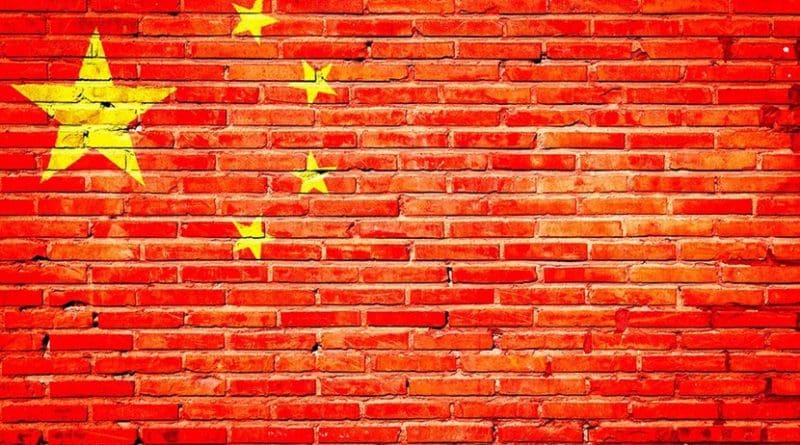Why Has China Recently Stepped Up Pressure On Its Rival Claimants In South China Sea? – Analysis
China has significantly increased its soft power in the region over the past decade and stands to lose a lot if its aggressive behavior in the South China Sea continues. But instead of softening its approach, it has recently stepped up its kinetic pressure on several of its rival claimants in the South China Sea, including Vietnam, Malaysia, and the Philippines. https://www.ibtimes.com/chinese-coastguard-ships-scream-out-their-presence-disputed-south-china-sea-waters-2835267 What is China doing, why is it doing it, and why now?
In late July, the US State Department accused China of “bullying” some Southeast Asian countries and threatening “regional energy security” by blocking their access to _ _ unexploited hydrocarbon resources.” http://www.hurriyetdailynews.com/us-concerned-over-chinas-interference-in-south-china-sea-145121 For the last three months, China undertook marine scientific research in what is Vietnam claims as its Exclusive Economic Zone (EEZ) in spite of its vociferous protests. https://amti.csis.org/should-vietnam-bring-the-south-china-sea-to-the-united-nations/ According to US State Department spokesperson Morgan Ortagus, the actions of the survey vessel were “an escalation by Beijing in its efforts to intimidate other claimants out of developing resources in the South China Sea”. https://www.afp.com/en/news/15/us-raps-china-escalation-south-china-sea-doc-1jo9851
By deploying coast guard and purported ‘maritime militia’ vessels to accompany the government research ship, China gave the impression that it is threatening to use force to back up its illegal incursion. In early October Vietnam alleged that three Chinese vessels prevented a Vietnamese fishing boat from fishing in Vietnam’s EEZ. https://www.scmp.com/news/china/diplomacy/article/3031763/vietnam-again-accuses-china-violating-its-fishing-rights-its
In May, a China coast guard vessel was seen near Luconia Shoals in Malaysia’s EEZ. According to the Asia Maritime Transparency Initiative “when Malaysia sent two oil and gas supply vessels to the area, the Chinese coastguard vessel circled them provocatively coming to within 80 metres”.
It continues to control the Philippines claimed Scarborough Shoal, to mass fishing boats near contested features occupied by the Philippines, https://www.scmp.com/news/china/diplomacy/article/3024099/philippine-president-rodrigo-duterte-head-beijing-under and to try to block Philippines resupply of its soldiers based on Second Thomas Shoal. https://www.bworldonline.com/foreign-affairs-told-of-chinese-ships-near-disputed-south-china-sea-shoal/ Its latest actions are certainly a significant ratcheting up of such pressure.
Why is China stepping up its pressure, and why now?
China has long-term pragmatic national security objectives and goals in the South China Sea—most importantly to prevent it from becoming an avenue of attack on its ‘vulnerable underbelly’ –as it was in the process of its colonial subjugation. Its government has a holistic strategy to achieve them. But what really distinguishes China’s foreign policy in the South China Sea from that of others is a prescient sense of timing. It seems to have an extraordinary ability to sense and take opportunities to incrementally advance towards its objectives—very seldom giving ground. Moreover it so far seems to be able to do so without triggering a major confrontation which could widen the conflict and provide an excuse for direct intervention by foreign powers. This is quite remarkable considering that the Philippines –one of the targets of China’s increased pressure –is a US military ally.
An ongoing shift in the strategic environment favors China. US President Donald Trump’s “America First” policy has raised doubts among its allies and strategic partners as to whether the U.S. will really back them in conflict with China. Moreover America, the Trump administration and its foreign policy establishment are distracted by the upcoming elections and serious foreign and domestic political controversy and are unlikely to respond militarily to provocations not directed at it. When these factors are combined with apparent progress towards joint development with the Philippines, China may be thinking that if it steps up the pressure now on the other claimants, they may’ crack’ and reach similar ‘deals’. This strategy is apparently having some success as Vietnam has become increasingly politically isolated in its aggressive resistance to China in the South China Sea while both the Philippines and Malaysia have chosen what they consider more realistic paths in their dealings with China. https://www.reuters.com/article/us-malaysia-china/malaysia-pm-says-cant-provoke-beijing-on-south-china-sea-uighur-issue-idUSKBN1WD0BY
China may calculate that the arbitration decision against it in the complaint brought by the Philippines–while definitely establishing precedent in international law –is technically only applicable to it and the Philippines—and even then it has proven to be unenforceable. To make it applicable to the other claimants, they would have to pursue complaints against China through the dispute settlement process of the UN Convention on the Law of the Sea just as the Philippines did. This would surely elicit China’s wrath and greatly increase their political, economic, quasi- military or and perhaps even military difficulties with it. So for the time being, this option is not being taken up –and even if it were, the result cannot be enforced.
The choice for China’s rival claimants seems to be boiling down to resisting an inevitably regionally dominant China that may want revenge on those that did not ‘cooperate’ with or support it against the West, or sharing their potential resources with it.
The carrot in the strategy is that there are advantages to negotiating sharing agreements with China, particularly if China is willing to accept a minority share in a government to government arrangement as supposedly indicated by China President Xi Jinping to Philippines President Rodrigo Duterte. https://www.reuters.com/article/us-philippines-china-southchinasea/philippines-duterte-says-xi-offering-gas-deal-if-arbitration-case-ignored-idUSKCN1VW07O
The major obstacle for all states involved is the fear that such an arrangement will be seen as abandoning their claim and thus delegitimizing the government. But if China accepts a minority share, these states could argue to their people that China has implicitly recognized their claim. Moreover the claim is not being abandoned –just put in abeyance until a more propitious time to enforce it legally and otherwise.
An obvious economic advantage of a successful arrangement is that the parties can reap the benefits of exploiting whatever resources exist in the disputed area. A major political advantage is that a provisional arrangement or the serious possibility thereof will lessen tension and the likelihood of kinetic conflict. China is well aware of the dilemma its rival claimants are facing. By stepping up the pressure now, it is hoping they will make a choice favorable to it.

